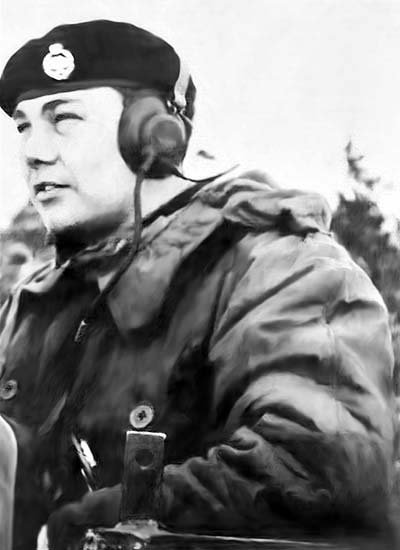Former solider states that veterans are the experts in understanding combat-related PTSD

Jimmy Johnson
__________________________________
Amazingly, all veterans suffering combat-related PTSD are like ‘peas in a pod’, and by the time the vast majority reach the prison system they are probably unknowingly suffering this disorder. We at Veterans In Prison (VIP) responded to this crisis by publishing The Survival Guide by Jimmy Johnson, but unfortunately by then it is far too late to prevent them coming into the prison population in a worse situation than just normal criminals.
The Veterans’ Survival Guide
However, if the Guide was issued to all combat veterans at an earlier stage, (such as being placed on Remand and awaiting trial), this would be a fantastic help not only to all the veterans concerned who could be unknowingly suffering combat-related PTSD, but also their defence teams. The Survival Guide would give their solicitors and the Courts an understanding of why these veterans are in this situation, and this would also ensure that the ones unknowingly suffering this disorder prior to their being taken into custody are given a chance of a fair and just trial. The Justice system could then take this into consideration when sentencing – especially more so when Judges can see that combat-related PTSD gives a reason for the crime and that it can also be treated.
Astonishingly however, it is certainly the case that thousands of veterans are in or have passed through the prison population while unknowingly suffering combat-related PTSD, and millions of pounds have been wasted as a result of their not being rehabilitated at the right time. This is simply because they were ‘missed’ at the very beginning when first arrested – which is an absurd situation.
Understanding Combat-Related PTSD
The only credible way of rehabilitating veterans suffering this mental disorder is to show them how to understand what combat-related PTSD is really all about and how it unknowingly takes control of their (and their families) lives. Understanding combat-related PTSD not only gives these veterans a reason ‘why’ they are in prison – it will help them lead normal productive lives afterwards. Yet at the moment they are all being released still trying to fit square pegs into round holes and when under pressure they are still ‘ticking time bombs’.
Veteran therapy groups could be set up inside the prison system, and with the support of psychiatrists and psychologists could train veterans as group facilitators assisted with The Survival Guide. This would become a formula that works and would be able to help rehabilitate other veterans in the prison population suffering combat-related PTSD. A great many of these veterans will become the ‘experts’ in this disorder because they have lived it for themselves. These veteran groups would be much more effective against combat-related PTSD than other ‘Offending Behaviour’ programmes, and a lot cheaper to boot!
The authorities may panic at the thought of the Survival Guide being issued to veterans in prison, and will almost certainly believe that it will lead to an outbreak of false pleas being put forward by the Courts by these veterans at their trials. This belief would however be completely misguided as it would be virtually impossible to make a false defence – because first and foremost anyone wishing to make a claim regarding combat-related PTSD must firstly prove their involvement in a traumatic incident. This is not easy, since it can only be done through Regimental records.
Traumatic Incidents
For example: an ambush situation would be documented and classed as a traumatic incident ‘if the veterans who wish to claim PTSD were on patrol that was ambushed’ – and some of their mates were killed or wounded on the patrol. This incident could be put forward as a traumatic incident – but combat-related PTSD would still have to be confirmed by a Psychiatrist or Psychologist.
On the other hand, someone might claim combat-related PTSD by simply saying ‘their mates were killed or wounded on this ambushed patrol’ – but they themselves were not there when it happened. This would not be classed as a traumatic incident and their claim would be dismissed.
Conclusion
So, it’s not easy for any Tom, Dick or Harry to simply claim combat-related PTSD by saying they served in wars or conflicts or were on the same fictitious patrol. Nevertheless, all the veterans who have been highly decorated for valour should automatically be regarded as high risk of suffering PTSD and have access to support, regardless of proof of involvement in a traumatic incident.
__________________________________
Jimmy Johnson, a decorated Corporal in the Royal Tank Regiment has been vigorously campaigning for over four decades on behalf of Veterans in Prison (VIP) who as a result of combat experience suffered from PTSD, or had an embedded reaction of spontaneous violence when involved in everyday disputes.
The information detailed in Jimmy’s books has already proved invaluable to many hundreds of veterans and their families, by explaining how when left untreated PTSD and other complex mental health disorders and difficulties can prove fatal, destroying the lives of veterans, their families and the innocent public in the wider community.
The Veterans’ Survival Guide (e-book) by Jimmy Johnson is available at:
https://www.jimmyjohnsonveteranssurvival.co.uk/
@VeteransJimmy
